Akshay Krishna Sheshadri
Editing Commonsense Knowledge in GPT
May 24, 2023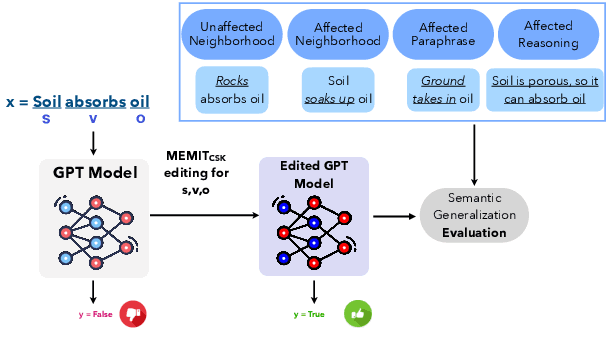
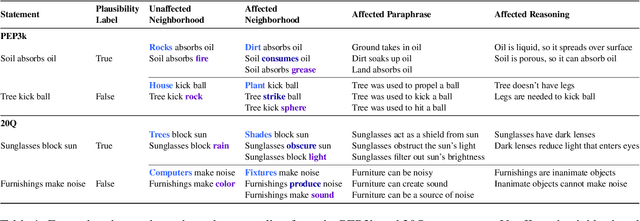
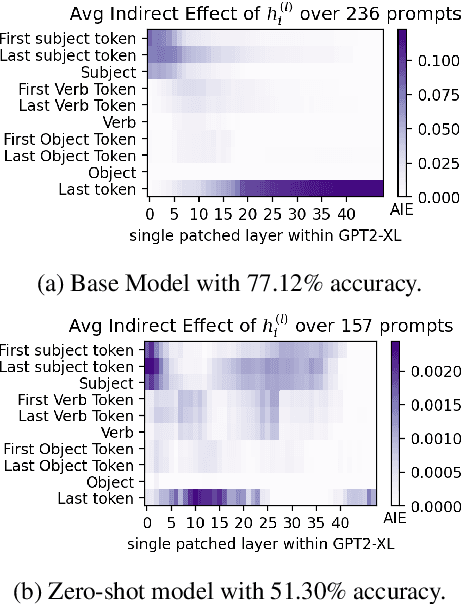
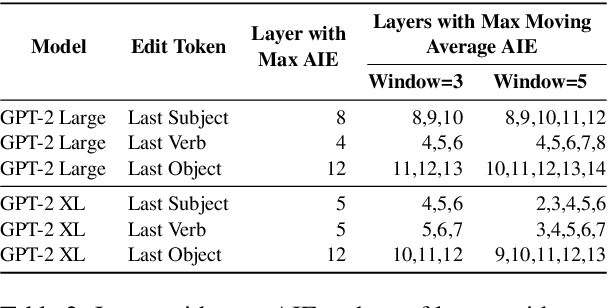
Abstract:Memory editing methods for updating encyclopedic knowledge in transformers have received increasing attention for their efficacy, specificity, and generalization advantages. However, it remains unclear if such methods can be adapted for the more nuanced domain of commonsense knowledge. We propose $MEMIT_{CSK}$, an adaptation of MEMIT to edit commonsense mistakes in GPT-2 Large and XL. We extend editing to various token locations and employ a robust layer selection strategy. Models edited by $MEMIT_{CSK}$ outperforms the fine-tuning baselines by 10.97% and 10.73% F1 scores on subsets of PEP3k and 20Q. We further propose a novel evaluation dataset, MEMIT-CSK-PROBE, that contains unaffected neighborhood, affected neighborhood, affected paraphrase, and affected reasoning challenges. $MEMIT_{CSK}$ demonstrates favorable semantic generalization, outperforming fine-tuning baselines by 13.72% and 5.57% overall scores on MEMIT-CSK-PROBE. These results suggest a compelling future direction of incorporating context-specific user feedback concerning commonsense in GPT by direct model editing, rectifying and customizing model behaviors via human-in-the-loop systems.
WER-BERT: Automatic WER Estimation with BERT in a Balanced Ordinal Classification Paradigm
Feb 13, 2021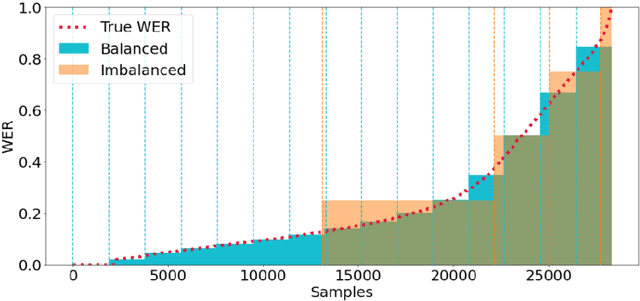
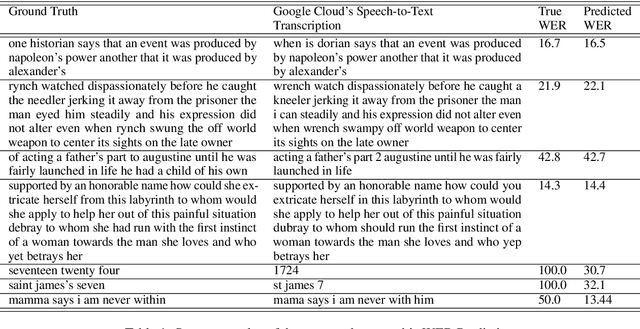
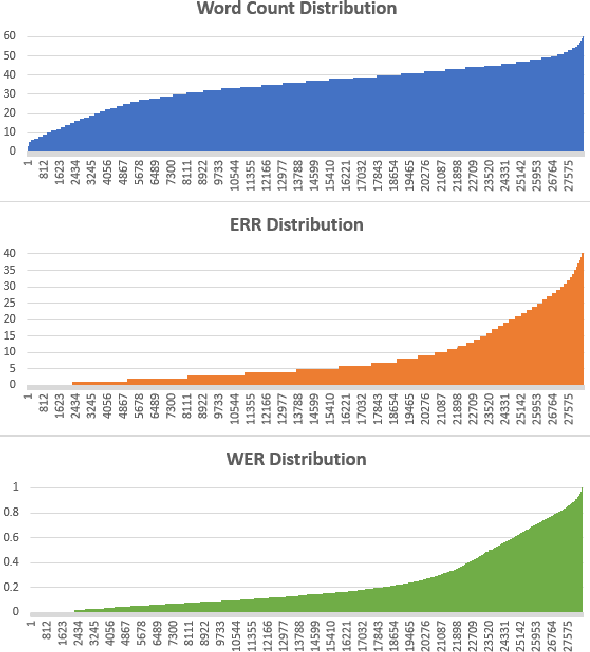
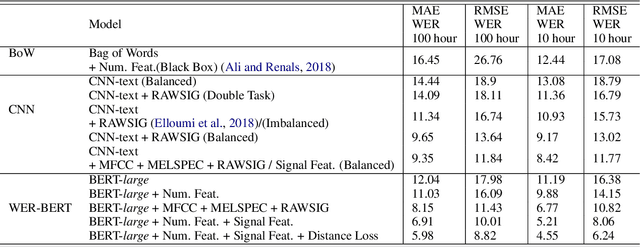
Abstract:Automatic Speech Recognition (ASR) systems are evaluated using Word Error Rate (WER), which is calculated by comparing the number of errors between the ground truth and the transcription of the ASR system. This calculation, however, requires manual transcription of the speech signal to obtain the ground truth. Since transcribing audio signals is a costly process, Automatic WER Evaluation (e-WER) methods have been developed to automatically predict the WER of a speech system by only relying on the transcription and the speech signal features. While WER is a continuous variable, previous works have shown that positing e-WER as a classification problem is more effective than regression. However, while converting to a classification setting, these approaches suffer from heavy class imbalance. In this paper, we propose a new balanced paradigm for e-WER in a classification setting. Within this paradigm, we also propose WER-BERT, a BERT based architecture with speech features for e-WER. Furthermore, we introduce a distance loss function to tackle the ordinal nature of e-WER classification. The proposed approach and paradigm are evaluated on the Librispeech dataset and a commercial (black box) ASR system, Google Cloud's Speech-to-Text API. The results and experiments demonstrate that WER-BERT establishes a new state-of-the-art in automatic WER estimation.
 Add to Chrome
Add to Chrome Add to Firefox
Add to Firefox Add to Edge
Add to Edge